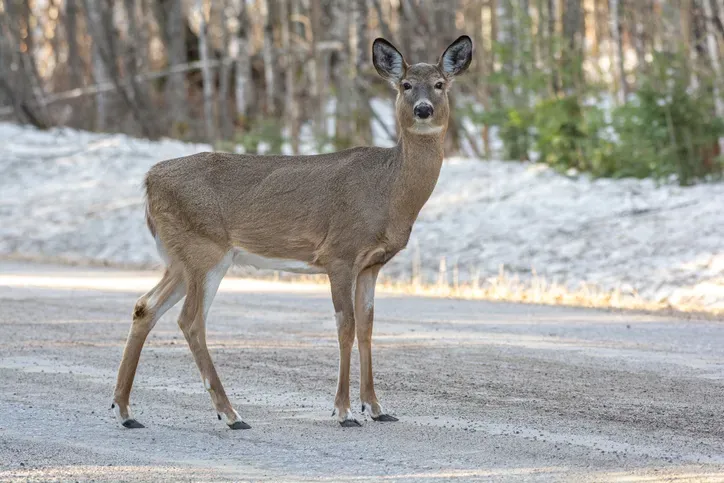
Buffalo, NY (WBEN) Western New York is dealing with an overpopulation of deer. It's an issues that municipalities have been grappling with for decades and approach with varying degrees of success.
Bait and shoot is a program that gained a great deal of attention years ago when the Town of Amherst implemented it, but a local wilflife expert tells WBEN it statistically won't control the population.
Now, on Buffalo suburb is turning to an education program to look for relief from the deer herd.
Barb Haney of the SPCA Serving Erie County tells Tom Bauerle culling the deer won't work. "When you start culling the species, you're going to increase the fitness of the females left," says Haney. "Instead of having one this season, they're going to have two, and the population will adjust."
Haney says there's a way to decrease fertility. "You trap, neuter and release. You shoot them with a fertility drug that won't let them have as many babies. It's wildlife fertility control," explains Haney. She says more and more people are looking into it, and the price has come down. But she says someone has to have the foresight to see the value in it.

West Seneca Supervisor Gary Dickson says that has not been tried yet. A task force was assigned the duty of dealing with what to do about the deer overpopulation. "They looked at the issue of contraception and it's not practical, and it's very expensive," says Dickson. He adds relocating deer is illegal.
Dickson says residents have been complaining over deer for the past decade. "It's deer-vehicle accidents, it's the destruction of people's gardens and the landscaping, and people don't like to see a lot of deer poop in their backyard," says Dickson. He says there's concern about ticks but the deer taskforce determined ticks are not a really a big issue as far as connection with the deer, as well as the potential for different diseases deer may have.
Dickson says the town board adopted the task force's recommendations for an intensive education program. "People understand that it's illegal to feed deer, which apparently a lot of people do. And also there are ways that you can mitigate the effect of deer either through sprays on plants, or planting different kinds of plants, and helping with allowing people to have fences a bit higher," says Dickson.
Dickson says deer basically reproduce as much as they have food. "So if they're healthy, they're going to reproduce a lot," says Dickson. He adds there's an almost infinite supply of food. He adds controlled hunting would be a last resort.
